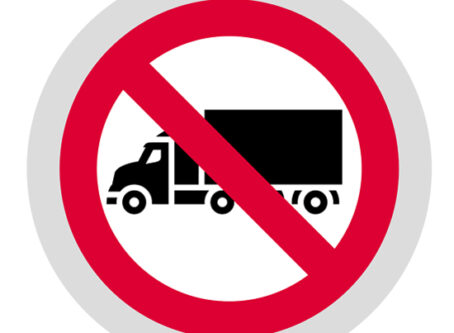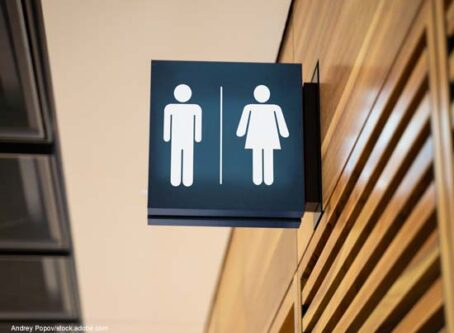Washington Trucking Associations, OOIDA, ATA back parking, restroom access bills
The Washington Trucking Associations, the Owner-Operator Independent Drivers Association, and the American Trucking Associations are throwing their support behind bills at the Washington statehouse to address truck parking and restroom access.
The first bill is intended to reduce emissions and safety risks of inadequate commercial truck parking in the state.
Sponsored by Rep. Dan Griffey, R-Allyn, the bill would provide tax incentives to increase truck parking options around the state and at ports.
Addressing short supply
Griffey wrote in the bill that the demand for truck parking in the state “far exceeds supply.”
“In a 2016 Washington State Department of Transportation survey, over 60% of truckers reported spending an hour or more per day looking for parking,” Griffey wrote. “The shortage of truck parking stifles economic growth, increases pollution, and makes our roadways less safe as fatigued drivers cannot find a safe place to park.”
He adds that a workshop of the Federal Highway Administration and the Washington State Department of Transportation found that the biggest hurdles for expanding capacity are high real estate costs and community opposition.
Tax incentives pursued
Griffey’s truck parking bill, HB1657, would add capacity through tax reductions associated with expanding existing parking and developing new parking.
Specifically, all real and personal property would be exempt from property taxes at a time when there are a minimum of 10 “safe, overnight commercial truck parking spaces constructed.”
As introduced, the bill calls for truck parking spaces to be a minimum of 54 feet long and 11 feet wide.
Trucking groups welcome pursuit
Mike Matousek, OOIDA director of state legislative affairs, said the truck parking bill addresses an issue that has plagued the trucking industry for decades.
“The lack of safe truck parking is a national crisis,” Matousek said. “In many parts of the country, truck drivers often have no choice but to park in locations that jeopardize their safety and the safety of the motoring public.”
He adds that these problems are compounded in areas with inclement weather. He cited Interstate 90 near the city of North Bend when Snoqualmie Pass is closed.
Sheri Call, WTA president and CEO, told Land Line Media the ball got rolling on the truck parking issue out of the 2016 workshop. She said feedback received drew much-needed attention to the issue.
The truck groups say they welcome new approaches to address the issue.
“While truck stops provide roughly 90% of all truck parking capacity, it is unrealistic to expect they will solve this problem on their own,” a joint statement reads. “In some cases, local ordinances prevent the construction or expansion of truck stops where they are needed most, and sometimes it simply does not make sense to add new capacity.”
Additionally, the groups are asking Griffey to make a minor change to the bill’s language that truck parking spaces be a minimum of 54 feet long and 11 feet wide.
“Unfortunately, the majority of long-haul tractor-trailers exceed those dimensions. If the goal is to provide new capacity for this segment of trucking, we would suggest more practical minimum dimensions of 70 feet long and 12 feet wide.”
Restroom access
The second bill to receive the endorsement of motor carriers and truck drivers would give truck operators more access to restrooms at retail establishments and port facilities throughout the state.
Rep. Mike Sells, D-Everett, is behind a bill to require a retail establishments to allow a common carrier delivering goods to an establishment access to a restroom during normal business hours. HB1706 has 21 co-sponsors.
Affected retail establishments are defined as “a place of business open to the general public for the sale of goods or services.”
Restrooms are defined as “a bathroom facility on the premises of, and operated by, a retail establishment” that is intended for use by customers or employees.
Two conditions must be met:
- The restroom must be in an area where providing access would not create an obvious health or safety risk to the user.
- Allowing the user to access the restroom does not pose an obvious security risk to the retail establishment or its employees.
Retail establishments that fail to follow the rule would face a $125 fine.
Marine terminals also covered
Terminal operators would be required to provide “a sufficient number of restrooms” for use by drayage truckers in areas of the terminal that operators typically have access. Areas covered in the legislation include inside the gate and truck queuing lots.
Restrooms could include fixed bathrooms or portable toilets.
Terminal operators would be in compliance with the rule when a policy is in place to allow drayage truckers to leave their vehicles at “reasonable times and locations” for purposes of access to restrooms.
Facilities must be in areas where access would not pose an “obvious health or safety risk” to the user.
Drayage truck operators accessing the terminal for the purpose of loading, unloading, or transporting cargo would be covered by the rule.
When nature calls
“The general public will never truly understand what it is like to not be able to use the restroom when natural calls out on the road, but this is a daily challenge for truck drivers across the country,” a joint statement reads.
“The least we can do for the men and women that literally keep our economy moving and deliver the goods we all depend on is to provide them with more access to restrooms and running water.”
On Jan. 17, the House Transportation Committee is scheduled to hold a hearing on HB1706.
Truck drivers interested in testifying, please click HERE. Select “House,” “Transportation Committee,” AND “1/17/2022 3:30 pm.” Then choose “HB 1706 truck drivers/restrooms” and the type of testimony. You can testify remotely, have your position noted for the record, or submit written testimony.
The joint letters of support are available for HB1706 and HB1657. LL









